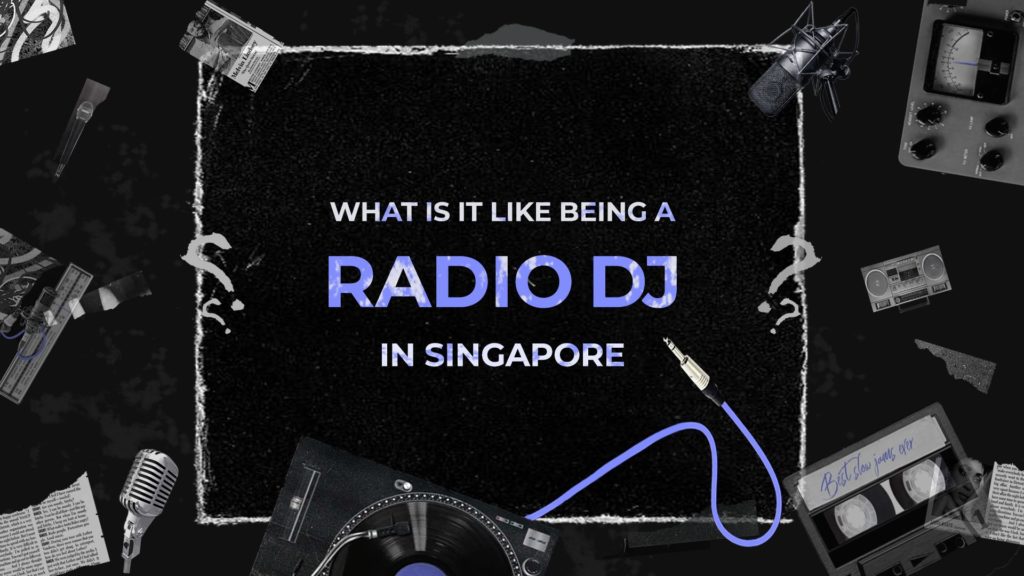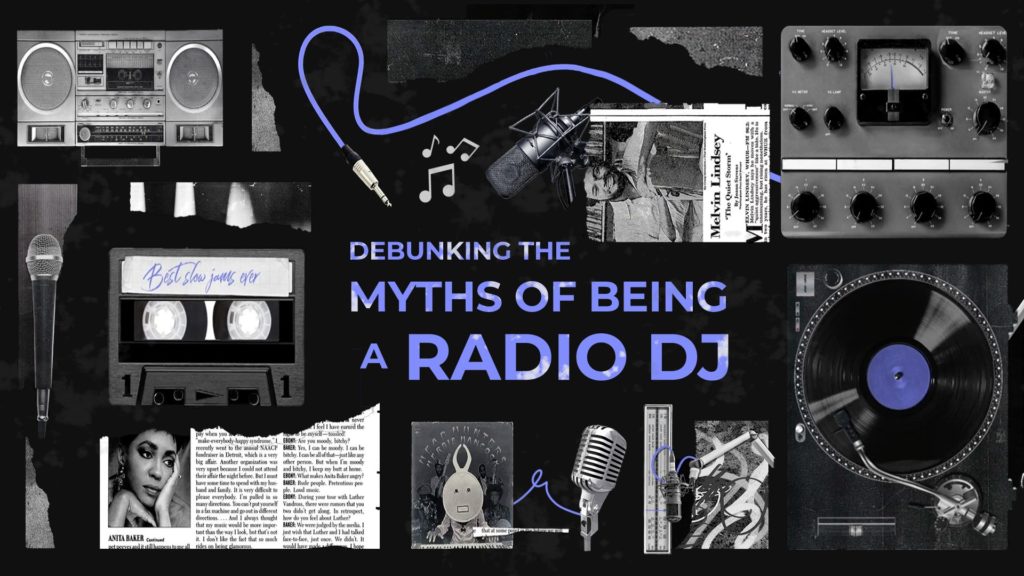Written by Rifdi Syahir & Ethan Ong
What is a DJ?
What comes to mind when you think of the word DJ? You might have thought of someone who sits down for hours playing music for people, or someone who hosts shows and talks about the latest trends, the best food, and gives unique recommendations for their audience. DJ, which stands for Disc Jockey, is simply understood as someone who plays music for people to listen to. However, the term DJ does not only refer to those who play recorded music at events, nightclubs and festivals. It also includes radio DJs. The difference between the two is that Radio DJs stream musical recordings on live radio shows. Nonetheless, the job of a radio DJ is not as simple as one might think!
Temasek Polytechnic was fortunate to welcome two YES933 DJs to our campus! DJs Hazelle Teo and Kun Hua shared their passion and love for their job when they came in search of the next big DJ personality for the latest talent show by MediaCorp – The Star Voice (寻找星声音). Catch the show on July 21!

Debunking the myths of being a DJ
When asked about the misconceptions of being a DJ in Singapore, Kun Hua and Hazelle had plenty to share.
Myth 1: “Radio DJs have short working hours”
Hazelle and Kun Hua shared that many believe radio DJs only have to work during the time that they are on air. In reality, their working hours extend far beyond the few hours that they are on air.
“People think that we just have to go on air for a number of hours and that’s it, we can go home. But no, we have to actually put in work into our production, like when we produce our show openers,” said Hazelle.
“Every hour is a different opener, so listeners don’t even have to look at the time. They hear the opener and they know, oh, it’s 5PM. So, there’s a lot of production work that has to be done on top of the hours that we are on air.”
Myth 2: “All radio DJs have to do is talk to earn money, it’s an easy job”
Kun Hua explained that although talking on air seems straightforward, it is quite the opposite. There are a lot of factors that go into helping radio DJs decide what they want to say on air.
“People think talking on air is simple. It’s harder than many might think to control the things we say. We can’t just say anything that crosses our mind because we have our parameters as a national broadcaster.”
Kun Hua added that plenty of effort has been put in to help him master speaking on air.
“Delivering what we want to say is also a challenge because we need to say it in an interesting way so that listeners like our talking and banter, as well as easily digest what we share. We actually go through plenty of training and practice to help us speak on air like we do today,” he said.
Myth 3: “Radio DJs earn a high income”
According to Kun Hua, a popular misconception about radio DJs is that “radio DJs in Singapore earn a lot of money” from their full-time job alone.
Kun Hua described his basic salary as a full-time radio DJ as “decent” and not “five figures a month” like plenty of Singaporeans think. Hazelle shared that when compared to her peers, she earns “less than them”.
Hazelle went on to add that she has to work with external clients to have an income that is on par with her peers.
“If we have outside engagements or events, that’s when extra income comes in and that plays a part. We have to work hard to ensure that we get these jobs, and these jobs actually help me to be above my peers,” she explained.
But money is not everything, at least not to Hazelle.
“I feel that if you want to be a DJ, money is secondary. I don’t know if that’s true to many people, but at least to me it’s more important that I feel happy and make people feel happy when I go on-air, which helps me to love my job,” she explained.

Top tips on being a great DJ
It goes without saying that a DJ must have an interesting voice that attracts audiences to listen. Of course, it is also important for radio DJs to have a good grasp at whichever language they speak on-air. It is also necessary for DJs to possess that uniqueness and a high energy when engaging with their audiences. These are some of the common traits a DJ must be well equipped with. But what else does it take to be a radio DJ here in Singapore?
Both Hazelle and Kun Hua entered the industry through the talent show. Kun Hua won the competition back in 2005, but he only transitioned into a full-time DJ in 2010 after finishing his degree.
On the other hand, while Hazelle may not have won the competition, it helped her display her talents live. After finishing in the top 12 of the competition, she was offered a spot with YES933.
The two DJs said that the competition is the best way to enter the industry. For starters, they both agreed that the competition helped them gain confidence as they had to perform in front of large crowds in malls. Hazelle also noted that “being on the show is the most effective way to enter the industry as it puts you in front of not just an audience but also producers and bosses.”
Being a DJ is more than just being live on the set hours assigned to you daily, DJs now have to be prepared to do more than just sitting behind the microphone. In the past, radio listeners did not recognise the faces of the people they were listening to but only their voice. Now, DJs are also public figures who have to show their faces in public often. DJs must be prepared to host events, interview celebrities live, and be active on social media to keep up with the latest trends. Other times they have to be ready to be filmed on camera while being on live radio. Both Hazelle and Kun Hua had explained that doing all of these with the other normal DJ duties can be rather tiring.
DJs also must be ready to adapt to unexpected situations. Hazelle and Kun Hua shared that their studio still uses CDs just in case the system has any errors, in which they will have to manually plug in and play music using CDs.
Said Kun Hua: “We need to ensure that we are ready to talk and engage our audience even as we are switching to using the CD.”
“Being a good DJ means that we have to be quick to adapt and prevent dead air.”




